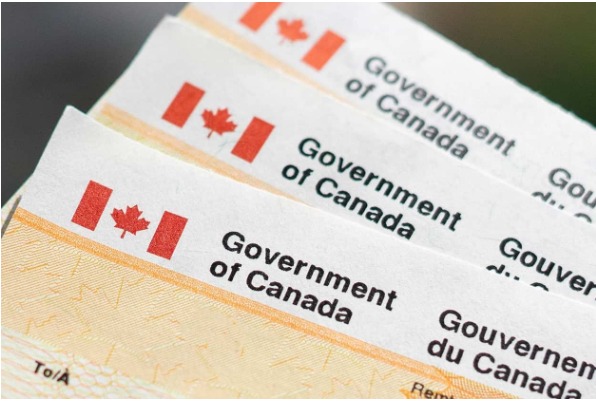An employment reference letter is an important document when applying for Canada Permanent Residency (PR) through work-related immigration programs. It shows your work experience and skills, which are important for the application process. This letter gives immigration authorities information about your qualifications, helping you qualify for programs like Express Entry or Provincial Nominee Programs.
The reference letter is crucial for confirming your work experience and matching it with the National Occupational Classification (NOC) code you chose. If the letter is not well-written or accurate, your application could be delayed or rejected. It is important to get this letter following the Immigration, Refugees, and Citizenship Canada (IRCC) guidelines.
This article will walk you through the necessary steps to secure an employment reference letter in 2025.
Steps to Secure an Employment Reference Letter
Getting an employment reference letter is an important step in applying for Canada Permanent Residency (PR). Follow these steps to make sure you meet the requirements and improve your chances of a successful application.
Identify the Right Person to Sign the Letter
To make sure your employment reference letter is credible and valid, it must be signed by an authorized person in your organization. This person should be a manager, supervisor, or department head. They can confirm your job duties and performance in a way that meets the requirements of Immigration, Refugees, and Citizenship Canada (IRCC).
The role of Human Resources (HR) or a department head is important too. HR can confirm your employment details and provide an official view of your job position. However, a direct supervisor or manager signing the letter may be more valuable because they are more familiar with your daily tasks and skills.
Ensure the Letter Matches the NOC Code
Your reference letter must match the National Occupational Classification (NOC) code you selected in your application. The NOC code categorizes your job based on duties and responsibilities. To meet immigration requirements, your letter must clearly describe your role and tasks in a way that matches the NOC description.
Tips for matching job descriptions with the NOC:
- Review the NOC description for your job to ensure the language and responsibilities match.
- Use specific job duties that align with those listed in the NOC. Avoid vague or generic terms.
- Highlight key skills that are emphasized in the NOC description, ensuring the letter reflects your actual responsibilities and expertise.
Request the Letter in Advance
It’s a good idea to request your employment reference letter well before your application deadline. This gives the person signing the letter enough time to verify the details and provide accurate information. It also allows time for any revisions or clarifications if needed.
Ideally, ask for the letter at least 4 to 6 weeks before submitting your application. This gives you time to fix any issues that may come up during the review process.
Provide the Required Information to the Signatory
To make the process easier and ensure the reference letter includes all the necessary details, give the person signing the letter a list of required information. This helps avoid missing important details and ensures the letter meets IRCC standards.
Major details to include:
- Your full name and job title.
- Dates of employment (start and end dates).
- Detailed description of job duties that align with the NOC.
- Weekly working hours, specifying whether the position was full-time or part-time.
- Annual salary and any relevant benefits.
- Contact information of the employer or organization.
What to Do If Obtaining a Formal Reference Letter is Impossible
In some cases, getting a formal employment reference letter may not be possible due to company policies, lost records, or other issues. However, there are alternative documents you can submit to strengthen your Canada PR application.
If you can’t get a formal reference letter, it’s important to explain the situation in your application. Write a statement explaining why you couldn’t get the letter and include any supporting evidence that backs up your job history. Being transparent helps avoid potential issues with your application.
Consider submitting the following alternative documents If a formal reference letter is unavailable:
Payment or Income Slips
Pay stubs or income slips from your employer can prove your employment and earnings over time. They confirm your job position and salary, which are important for showing your qualifications under economic immigration streams. Submit pay stubs that cover your entire time with the company. They should also include clear company details (name, address, etc.) and your job title.
Bank Statements
Bank statements showing direct deposits from your employer can help verify your income. These documents provide a financial record that confirms your ongoing employment during the claimed period. Include bank statements from the relevant time, showing salary deposits from your employer. Ensure the transactions are clearly labeled with the employer’s name and payment dates.
Offer Letters, Contracts, and Job Descriptions
Offer letters, employment contracts, and job descriptions are important documents that outline your job terms, including your role, duties, and employment duration. They can serve as proof of your job and its alignment with the NOC codes. Provide a copy of your original offer letter or contract, along with any job descriptions that detail your responsibilities. These documents should clearly state your job title and match the NOC description for the relevant role.
Common Mistakes and How to Avoid Them
When preparing your employment reference letter for Canada PR, it’s important to avoid common mistakes that could harm your application. These issues can cause delays or even rejection if not handled correctly. Here are some of the most common problems applicants face and how to avoid them.
Failing to Match Job Titles with NOC Codes
One of the most important parts of your employment reference letter is making sure your job title matches the National Occupational Classification (NOC) code you chose. The NOC categorizes jobs based on duties and responsibilities, and immigration officials use this to assess your qualifications. If your job title doesn’t match the NOC description, it could raise doubts about your application’s accuracy.
How to Avoid This:
- Carefully review the NOC code that best matches your job. Ensure your job title and responsibilities align with the NOC description.
- Include precise descriptions of your tasks and responsibilities that are reflected in the NOC. Avoid using vague language such as “general office work” or “miscellaneous tasks.”
- If unsure, consult with an immigration consultant or expert who can help ensure your job title and duties align correctly with the NOC.
Providing Incomplete or Vague Job Duties
Another common mistake is giving vague or incomplete descriptions of your job duties in the reference letter. Immigration authorities use the letter to assess your skills and experience. If the letter doesn’t provide enough detail about your tasks and responsibilities, it may not clearly show your qualifications.
How to Avoid This:
- Be specific about what your role entails. List your primary tasks, responsibilities, and any specialized skills you have developed. For example, instead of saying “managed a team,” describe the team size, your leadership role, and the specific tasks you supervised.
- Ensure the job duties described in the letter align directly with those mentioned in the NOC code. Use the language from the NOC to accurately describe your responsibilities.
- Generic terms like “helped,” “assisted,” or “participated” should be replaced with clear, active descriptions of your contributions and achievements.
Not Adhering to the Format and Official Requirements
Another important part of getting a good employment reference letter is making sure it meets the official rules set by Immigration, Refugees, and Citizenship Canada (IRCC). If the letter doesn’t follow the right format or is missing details like the company letterhead or signatures, it could be rejected or delayed.
How to Avoid This:
- The reference letter should be printed on the company’s official letterhead, which includes the company name, address, and contact information.
- The letter must be signed by an authorized person, such as a manager or HR representative, and their name and title should be printed below the signature.
- Ensure the letter includes your job title, dates of employment, duties, weekly hours, and salary. It should also list the company’s contact information and, if possible, be stamped with the company seal.
- Provide the signatory with a clear outline of the necessary information to avoid the need for multiple revisions. Make sure all requirements are met before submitting the letter to avoid delays.
Frequently Asked Questions
Can I Submit an Affidavit Instead of a Reference Letter?
Yes, if you cannot obtain a formal reference letter, an affidavit from a colleague or supervisor confirming your employment details can be submitted.
What if My job Title Doesn’t Match the NOC Code?
Ensure that your job title and duties align with the NOC description. If not, adjust your job duties to match the NOC or choose a more accurate code.
Can I Use a Personal Letter or Recommendation?
No, personal letters or recommendations are not acceptable. The reference must come from an official authority within the organization.
Conclusion
It’s important to stay accurate and follow the rules throughout the process. Any mistakes or missing information can cause delays or rejection of your application. Make sure the reference letter includes all required details, such as your job title, duties, employment dates, and salary, and meets the official rules set by Immigration, Refugees, and Citizenship Canada (IRCC). If getting a formal letter is difficult, remember that alternative documents like pay slips, contracts, or affidavits can also support your application.






